This is the home of the original works of S.J. Storm,i.e. The Carridan Constellations, prompt fills etc.; I will also post/reblog about writing in general
Don't wanna be here? Send us removal request.
Text
Where to Start Your Research When Writing a Disabled Character
[large text: Where to Start Your Research When Writing a Disabled Character]
So you have decided that you want to make a disabled character! Awesome. But what's next? What information should you decide on at the early phrase of making the character?
This post will only talk about the disability part of the character creation process. Obviously, a disabled character needs a personality, interests, and backstory as every other one. But by including their disability early in the process, you can actually get it to have a deeper effect on the character - disability shouldn't be their whole life, but it should impact it. That's what disabilities do.
If you don't know what disability you would want to give them in the first place;
[large text: If you don't know what disability you would want to give them in the first place;]
Start broad. Is it sensory, mobility related, cognitive, developmental, autoimmune, neurodegenerative; maybe multiple of these, or maybe something else completely? Pick one and see what disabilities it encompasses; see if anything works for your character. Or...
If you have a specific symptom or aid in mind, see what could cause them. Don't assume or guess; not every wheelchair user is vaguely paralyzed below the waist with no other symptoms, not everyone with extensive scarring got it via physical trauma. Or...
Consider which disabilities are common in real life. Cerebral palsy, muscular dystrophy, stroke, cataracts, diabetes, intellectual disability, neuropathy, multiple sclerosis, epilepsy, thyroid disorders, autism, dwarfism, arthritis, cancers, brain damage, just to name a few.
Decide what specific type of condition they will have. If you're thinking about them having albinism, will it be ocular, oculocutaneous, or one of the rare syndrome-types? If you want to give them spinal muscular atrophy, which of the many possible onsets will they have? If they have Ehlers-Danlos Syndrome, which one out of the 13 different types do they have? Is their amputation below, or above the knee (it's a major difference)? Not all conditions will have subtypes, but it's worth looking into to not be surprised later. This will help you with further research.
If you're really struggling with figuring out what exact disability would make sense for your character, you can send an ask. Just make sure that you have tried the above and put actual specifics in your ask to give us something to work with. You can also check out our "disabled character ideas" tag.
Here are some ideas for a character using crutches.
Here are some ideas for a character with a facial difference (obligatory link: what is a facial difference?).
If you already know what disability your character is going to have;
[large text: If you already know what disability your character is going to have;]
Start by reading about the onset and cause of the condition. It could be acquired, congenital, progressive, potentially multiple of these. They could be caused by an illness, trauma, or something else entirely. Is your character a congenital amputee, or is it acquired? If acquired - how recently? Has it been a week, or 10 years? What caused them to become disabled - did they have meningitis, or was it an accident? Again, check what your options are - there are going to be more diverse than you expect.
Read about the symptoms. Do not assume or guess what they are. You will almost definitely discover something new. Example: a lot of people making a character with albinism don't realize that it has other symptoms than just lack of melanin, like nystagmus, visual impairment, and photophobia. Decide what your character experiences, to what degree, how frequently, and what do they do (or don't do) to deal with it.
Don't give your character only the most "acceptable" symptoms of their disability and ignore everything else. Example: many writers will omit the topic of incontinence in their para- and tetraplegic characters, even though it's extremely common. Don't shy away from aspects of disability that aren't romanticized.
Don't just... make them abled "because magic". If they're Deaf, don't give them some ability that will make them into an essentially hearing person. Don't give your blind character some "cheat" so that they can see, give them a cane. Don't give an amputee prosthetics that work better than meat limbs. To have a disabled character you need to have a character that's actually disabled. There's no way around it.
Think about complications your character could experience within the story. If your character wears their prosthetic a lot, they might start to experience skin breakdown or pain. Someone who uses a wheelchair a lot has a risk of pressure sores. Glowing and Flickering Fantasy Item might cause problems for someone photophobic or photosensitive. What do they do when that happens, or how do they prevent that from happening?
Look out for comorbidities. It's rare for disabled people to only have one medical condition and nothing else. Disabilities like to show up in pairs. Or dozens.
If relevant, consider mobility aids, assistive devices, and disability aids. Wheelchairs, canes, rollators, braces, AAC, walkers, nasal cannulas, crutches, white canes, feeding tubes, braillers, ostomy bags, insulin pumps, service dogs, trach tubes, hearing aids, orthoses, splints... the list is basically endless, and there's a lot of everyday things that might count as a disability aid as well - even just a hat could be one for someone whose disability requires them to stay out of the sun. Make sure that it's actually based on symptoms, not just your assumptions - most blind people don't wear sunglasses, not all people with SCI use a wheelchair, upper limb prosthetics aren't nearly as useful as you think. Decide which ones your character could have, how often they would use them, and if they switch between different aids.
Basically all of the above aids will have subtypes or variants. There is a lot of options. Does your character use an active manual wheelchair, a powerchair, or a generic hospital wheelchair? Are they using high-, or low-tech AAC? What would be available to them? Does it change over the course of their story, or their life in general?
If relevant, think about what treatment your character might receive. Do they need medication? Physical therapy? Occupational therapy? Orientation and mobility training? Speech therapy? Do they have access to it, and why or why not?
What is your character's support system? Do they have a carer; if yes, then what do they help your character with and what kind of relationship do they have? Is your character happy about it or not at all?
How did their life change after becoming disabled? If your character goes from being an extreme athlete to suddenly being a full-time wheelchair user, it will have an effect - are they going to stop doing sports at all, are they going to just do extreme wheelchair sports now, or are they going to try out wheelchair table tennis instead? Do they know and respect their new limitations? Did they have to get a different job or had to make their house accessible? Do they have support in this transition, or are they on their own - do they wish they had that support?
What about *other* characters? Your character isn't going to be the only disabled person in existence. Do they know other disabled people? Do they have a community? If your character manages their disability with something that's only available to them, what about all the other people with the same disability?
What is the society that your character lives in like? Is the architecture accessible? How do they treat disabled people? Are abled characters knowledgeable about disabilities? How many people speak the local sign language(s)? Are accessible bathrooms common, or does your character have to go home every few hours? Is there access to prosthetists and ocularists, or what do they do when their prosthetic leg or eye requires the routine check-up?
Know the tropes. If a burn survivor character is an evil mask-wearer, if a powerchair user is a constantly rude and ungrateful to everyone villain, if an amputee is a genius mechanic who fixes their own prosthetics, you have A Trope. Not all tropes are made equal; some are actively harmful to real people, while others are just annoying or boring by the nature of having been done to death. During the character creation process, research what tropes might apply and just try to trace your logic. Does your blind character see the future because it's a common superpower in their world, or are you doing the ancient "Blind Seer" trope?
Remember, that not all of the above questions will come up in your writing, but to know which ones won't you need to know the answers to them first. Even if you don't decide to explicitly name your character's condition, you will be aware of what they might function like. You will be able to add more depth to your character if you decide that they have T6 spina bifida, rather than if you made them into an ambiguous wheelchair user with ambiguous symptoms and ambiguous needs. Embrace research as part of your process and your characters will be better representation, sure, but they will also make more sense and seem more like actual people; same with the world that they are a part of.
This post exists to help you establish the basics of your character's disability so that you can do research on your own and answer some of the most common ("what are symptoms of x?") questions by yourself. If you have these things already established, it will also be easier for us to answer any possible questions you might have - e.g. "what would a character with complete high-level paraplegia do in a world where the modern kind of wheelchair has not been invented yet?" is more concise than just "how do I write a character with paralysis?" - I think it's more helpful for askers as well; a vague answer won't be of much help.
I hope that this post is helpful,
mod Sasza
4K notes
·
View notes
Text
Okay, another little lesson for fic writers since I see it come up sometimes in fics: wine in restaurants.
When you buy a bottle of wine in a (nicer) restaurant, generally (please note my emphasis there, this is a generalization for most restaurants, but not all restaurants, especially non-US ones) you may see a waiter do a few things when they bring you the bottle.
The waiter presents the bottle to the person who ordered it
The waiter uncorks the bottle in order to serve it
The waiter hands the cork to the person who ordered the bottle
The waiter pours a small portion of the wine (barely a splash) and waits for the person who ordered it to taste it
The waiter then pours glasses for everyone else at the table, and then returns to fill up the initial taster's glass
Now, you might be thinking -- that's all pretty obvious, right? They're bringing you what you ordered, making sure you liked it, and then pouring it for the group. Wrong. It's actually a little bit more complicated than that.
The waiter presents the bottle to the person who ordered it so that they can inspect the label and vintage and make sure it's the bottle they actually ordered off the menu
The waiter uncorks the bottle so that the table can see it was unopened before this moment (i.e., not another wine they poured into an empty bottle) and well-sealed
The waiter hands the cork to the person who ordered the bottle so that they can inspect the label on the cork and determine if it matches up; they can also smell/feel the cork to see if there is any dergradation or mold that might impact the wine itself
The waiter pours a small portion for the person who ordered to taste NOT to see if they liked it -- that's a common misconception. Yes, sometimes when house wine is served by the glass, waiters will pour a portion for people to taste and agree to. But when you order a bottle, the taste isn't for approval -- you've already bought the bottle at this point! You don't get to refuse it if you don't like it. Rather, the tasting is to determine if the wine is "corked", a term that refers to when a wine is contaminated by TCA, a chemical compound that causes a specific taste/flavor. TCA can be caused by mold in corks, and is one of the only reasons you can (generally) refuse a bottle of wine you have already purchased. Most people can taste or smell TCA if they are trained for it; other people might drink the wine for a few minutes before noticing a damp, basement-like smell on the aftertaste. Once you've tasted it, you'll remember it. That first sip is your opportunity to take one for the table and save them from a possibly corked bottle of wine, which is absolutely no fun.
If you've sipped the wine (I generally smell it, I've found it's easier to smell than taste) and determined that it is safe, you then nod to your waiter. The waiter will then pour glasses for everyone else at the table. If the wine is corked, you would refuse the bottle and ask the waiter for a new bottle. If there is no new bottle, you'll either get a refund or they'll ask you to choose another option on their wine list. A good restaurant will understand that corked bottles happen randomly, and will leap at the opportunity to replace it; a bad restaurant or a restaurant with poor training will sometimes try to argue with you about whether or not it's corked. Again, it can be a subtle, subjective taste, so proceed carefully.
In restaurants, this process can happen very quickly! It's elegant and practiced. The waiter will generally uncork the bottle without setting the bottle down or bracing it against themselves. They will remove the cork without breaking it, and they will pour the wine without dripping it down the label or on the table.
13K notes
·
View notes
Text
fascinating that when you tell people "you have to learn the rules to break them" when talking about drawing/painting etc everyone nods and agrees but the second you say "you have to read books if you want to write better" there's a horde of contrarians begging to be the wrongest people ever all of a sudden
49K notes
·
View notes
Text
my fave writing reminder

honestly, this phrase has been on my mind more times than i can count. i've kidnapped it, taken it as a hostage with no ransom money because i need it to live permanently in my head.
44K notes
·
View notes
Text
Things That May Be Causing Your Writer's Block- and How to Beat Them
I don't like the term 'Writer's Block' - not because it isn't real, but because the term is so vague that it's useless. Hundreds of issues all get lumped together under this one umbrella, making writer's block seem like this all-powerful boogeyman that's impossible to beat. Worse yet, it leaves people giving and receiving advice that is completely ineffective because people often don't realize they're talking about entirely different issues.
In my experience, the key to beating writer's block is figuring out what the block even is, so I put together a list of Actual Reasons why you may be struggling to write:
(note that any case of writer's block is usually a mix of two or more)
Perfectionism (most common)
What it looks like:
You write one sentence and spend the next hour googling "synonyms for ___"
Write. Erase. Write. Rewrite. Erase.
Should I even start writing this scene when I haven't figured out this one specific detail yet?
I hate everything I write
Cringing while writing
My first draft must be perfect, or else I'm a terrible writer
Things that can help:
Give yourself permission to suck
Keep in mind that nothing you write is going to be perfect, especially your first draft
Think of writing your first/early drafts not as writing, but sketching out a loose foundation to build upon later
People write multiple drafts for a reason: write now, edit later
Stop googling synonyms and save that for editing
Write with a pen to reduce temptation to erase
Embrace leaving blank spaces in your writing when you can't think of the right word, name, or detail
It's okay if your writing sucks. We all suck at some point. Embrace the growth mindset, and focus on getting words on a page
Lack of inspiration (easiest to fix)
What it looks like:
Head empty, no ideas
What do I even write about???
I don't have a plot, I just have an image
Want to write but no story to write
Things that can help:
Google writing prompts
If writing prompts aren't your thing, instead try thinking about what kind of tropes/genres/story elements you would like to try out
Instead of thinking about the story you would like to write, think about the story you would like to read, and write that
It's okay if you don't have a fully fleshed out story idea. Even if it's just an image or a line of dialogue, it's okay to write that. A story may or may not come out of it, but at least you got the creative juices flowing
Stop writing. Step away from your desk and let yourself naturally get inspired. Go for a walk, read a book, travel, play video games, research history, etc. Don't force ideas, but do open up your mind to them
If you're like me, world-building may come more naturally than plotting. Design the world first and let the story come later
Boredom/Understimulation (lost the flow)
What it looks like:
I know I should be writing but uugggghhhh I just can'tttttt
Writing words feels like pulling teeth
I started writing, but then I got bored/distracted
I enjoy the idea of writing, but the actual process makes me want to throw my laptop out the window
Things that can help:
Introduce stimulation: snacks, beverages, gum, music such as lo-fi, blankets, decorate your writing space, get a clickity-clackity keyboard, etc.
Add variety: write in a new location, try a new idea/different story for a day or so, switch up how you write (pen and paper vs. computer) or try voice recording or speech-to-text
Gamify writing: create an arbitrary challenge, such as trying to see how many words you can write in a set time and try to beat your high score
Find a writing buddy or join a writer's group
Give yourself a reward for every writing milestone, even if it's just writing a paragraph
Ask yourself whether this project you're working on is something you really want to be doing, and be honest with your answer
Intimidation/Procrastination (often related to perfectionism, but not always)
What it looks like:
I was feeling really motivated to write, but then I opened my laptop
I don't even know where to start
I love writing, but I can never seem to get started
I'll write tomorrow. I mean next week. Next month? Next month, I swear (doesn't write next month)
Can't find the time or energy
Unreasonable expectations (I should be able to write 10,000 words a day, right????)
Feeling discouraged and wondering why I'm even trying
Things that can help:
Follow the 2 min rule (or the 1 paragraph rule, which works better for me): whenever you sit down to write, tell yourself that you are only going to write for 2 minutes. If you feel like continuing once the 2 mins are up, go for it! Otherwise, stop. Force yourself to start but DO NOT force yourself to continue unless you feel like it. The more often you do this, the easier it will be to get started
Make getting started as easy as possible (i.e. minimize barriers: if getting up to get a notebook is stopping you from getting started, then write in the notes app of your phone)
Commit to a routine that will work for you. Baby steps are important here. Go with something that feels reasonable: every day, every other day, once a week, twice a week, and use cues to help you remember to start. If you chose a set time to write, just make sure that it's a time that feels natural to you- i.e. don't force yourself to writing at 9am every morning if you're not a morning person
Find a friend or a writing buddy you can trust and talk it out or share a piece of work you're proud of. Sometimes we just get a bit bogged down by criticism- either internal or external- and need a few words of encouragement
The Problem's Not You, It's Your Story (or Outline (or Process))
What it looks like:
I have no problems writing other scenes, it's just this scene
I started writing, but now I have no idea where I'm going
I don't think I'm doing this right
What's an outline?
Drowning in documents
This. Doesn't. Make. Sense. How do I get from this plot point to this one?!?!?! (this ColeyDoesThings quote lives in my head rent free cause BOY have I been there)
Things That Can Help:
Go back to the drawing board. Really try to get at the root of why a scene or story isn't working
A part of growing as a writer is learning when to kill your darlings. Sometimes you're trying to force an idea or scene that just doesn't work and you need to let it go
If you don't have an outline, write one
If you have an outline and it isn't working, rewrite it, or look up different ways to structure it
You may be trying to write as a pantser when you're really a plotter or vice versa. Experiment with different writing processes and see what feels most natural
Study story structures, starting with the three act structure. Even if you don't use them, you should know them
Check out Ellen Brock on YouTube. She's a professional novel editor who has a lot of advice on writing strategies for different types of writers
Also check out Savage Books on YouTube (another professional story editor) for advice on story structure and dialogue. Seriously, I cannot recommend this guy enough
Executive Dysfunction, Usually From ADHD/Autism
What it looks like:
Everything in boredom/understimulation
Everything in intimidation/procrastination
You have been diagnosed with and/or have symptoms of ADHD/Autism
Things that can help:
If you haven't already, seek a diagnosis or professional treatment
Hire an ADHD coach or other specialist that can help you work with your brain (I use Shimmer; feel free to DM me for a referral)
Seek out neurodiverse communities for advice and support
Try body doubling! There's lot's of free online body doubling websites out there for you to try. If social anxiety is a barrier, start out with writing streams such as katecavanaughwrites on Twitch
Be aware of any sensory barriers that may be getting in the way of you writing (such as an uncomfortable desk chair, harsh lighting, bad sounds)
And Lastly, Burnout, Depression, or Other Mental Illness
What it looks like:
You have symptoms of burnout or depression
Struggling with all things, not just writing
It's more than a lack of inspiration- the spark is just dead
Things that can help:
Forget writing for now. Focus on healing first.
Seek professional help
If you feel like it, use writing as a way to explore your feelings. It can take the form of journaling, poetry, an abstract reflection of your thoughts, narrative essays, or exploring what you're feeling through your fictional characters. The last two helped me rediscover my love of writing after I thought years of depression had killed it for good. Just don't force yourself to do so, and stop if it takes you to a darker place instead of feeling cathartic
21K notes
·
View notes
Text
The Neurodivergent Writer’s Guide to Fun and Productivity
(Even when life beats you down)
Look, I’m a mom, I have ADHD, I’m a spoonie. To say that I don’t have heaps of energy to spare and I struggle with consistency is an understatement. For years, I tried to write consistently, but I couldn’t manage to keep up with habits I built and deadlines I set.
So fuck neurodivergent guides on building habits, fuck “eat the frog first”, fuck “it’s all in the grind”, and fuck “you just need time management”—here is how I manage to write often and a lot.
Focus on having fun, not on the outcome
This was the groundwork I had to lay before I could even start my streak. At an online writing conference, someone said: “If you push yourself and meet your goals, and you publish your book, but you haven’t enjoyed the process… What’s the point?” and hoo boy, that question hit me like a truck.
I was so caught up in the narrative of “You’ve got to show up for what’s important” and “Push through if you really want to get it done”. For a few years, I used to read all these productivity books about grinding your way to success, and along the way I started using the same language as they did. And I notice a lot of you do so, too.
But your brain doesn’t like to grind. No-one’s brain does, and especially no neurodivergent brain. If having to write gives you stress or if you put pressure on yourself for not writing (enough), your brain’s going to say: “Huh. Writing gives us stress, we’re going to try to avoid it in the future.”
So before I could even try to write regularly, I needed to teach my brain once again that writing is fun. I switched from countable goals like words or time to non-countable goals like “fun” and “flow”.
Rewire my brain: writing is fun and I’m good at it
I used everything I knew about neuroscience, psychology, and social sciences. These are some of the things I did before and during a writing session. Usually not all at once, and after a while I didn’t need these strategies anymore, although I sometimes go back to them when necessary.
I journalled all the negative thoughts I had around writing and try to reason them away, using arguments I knew in my heart were true. (The last part is the crux.) Imagine being supportive to a writer friend with crippling insecurities, only the friend is you.
Not setting any goals didn’t work for me—I still nurtured unwanted expectations. So I did set goals, but made them non-countable, like “have fun”, “get in the flow”, or “write”. Did I write? Yes. Success! Your brain doesn’t actually care about how high the goal is, it cares about meeting whatever goal you set.
I didn’t even track how many words I wrote. Not relevant.
I set an alarm for a short time (like 10 minutes) and forbade myself to exceed that time. The idea was that if I write until I run out of mojo, my brain learns that writing drains the mojo. If I write for 10 minutes and have fun, my brain learns that writing is fun and wants to do it again.
Reinforce the fact that writing makes you happy by rewarding your brain immediately afterwards. You know what works best for you: a walk, a golden sticker, chocolate, cuddle your dog, whatever makes you happy.
I conditioned myself to associate writing with specific stimuli: that album, that smell, that tea, that place. Any stimulus can work, so pick one you like. I consciously chose several stimuli so I could switch them up, and the conditioning stays active as long as I don’t muddle it with other associations.
Use a ritual to signal to your brain that Writing Time is about to begin to get into the zone easier and faster. I guess this is a kind of conditioning as well? Meditation, music, lighting a candle… Pick your stimulus and stick with it.
Specifically for rewiring my brain, I started a new WIP that had no emotional connotations attached to it, nor any pressure to get finished or, heaven forbid, meet quality norms. I don’t think these techniques above would have worked as well if I had applied them on writing my novel.
It wasn’t until I could confidently say I enjoyed writing again, that I could start building up a consistent habit. No more pushing myself.
I lowered my definition for success
When I say that nowadays I write every day, that’s literally it. I don’t set out to write 1,000 or 500 or 10 words every day (tried it, failed to keep up with it every time)—the only marker for success when it comes to my streak is to write at least one word, even on the days when my brain goes “naaahhh”. On those days, it suffices to send myself a text with a few keywords or a snippet. It’s not “success on a technicality (derogatory)”, because most of those snippets and ideas get used in actual stories later. And if they don’t, they don’t. It’s still writing. No writing is ever wasted.
A side note on high expectations, imposter syndrome, and perfectionism
Obviously, “Setting a ridiculously low goal” isn’t something I invented. I actually got it from those productivity books, only I never got it to work. I used to tell myself: “It’s okay if I don’t write for an hour, because my goal is to write for 20 minutes and if I happen to keep going for, say, an hour, that’s a bonus.” Right? So I set the goal for 20 minutes, wrote for 35 minutes, and instead of feeling like I exceeded my goal, I felt disappointed because apparently I was still hoping for the bonus scenario to happen. I didn’t know how to set a goal so low and believe it.
I think the trick to making it work this time lies more in the groundwork of training my brain to enjoy writing again than in the fact that my daily goal is ridiculously low. I believe I’m a writer, because I prove it to myself every day. Every success I hit reinforces the idea that I’m a writer. It’s an extra ward against imposter syndrome.
Knowing that I can still come up with a few lines of dialogue on the Really Bad Days—days when I struggle to brush my teeth, the day when I had a panic attack in the supermarket, or the day my kid got hit by a car—teaches me that I can write on the mere Bad-ish Days.
The more I do it, the more I do it
The irony is that setting a ridiculously low goal almost immediately led to writing more and more often. The most difficult step is to start a new habit. After just a few weeks, I noticed that I needed less time and energy to get into the zone. I no longer needed all the strategies I listed above.
Another perk I noticed, was an increased writing speed. After just a few months of writing every day, my average speed went from 600 words per hour to 1,500 wph, regularly exceeding 2,000 wph without any loss of quality.
Talking about quality: I could see myself becoming a better writer with every passing month. Writing better dialogue, interiority, chemistry, humour, descriptions, whatever: they all improved noticeably, and I wasn’t a bad writer to begin with.
The increased speed means I get more done with the same amount of energy spent. I used to write around 2,000-5,000 words per month, some months none at all. Nowadays I effortlessly write 30,000 words per month. I didn’t set out to write more, it’s just a nice perk.
Look, I’m not saying you should write every day if it doesn’t work for you. My point is: the more often you write, the easier it will be.
No pressure
Yes, I’m still working on my novel, but I’m not racing through it. I produce two or three chapters per month, and the rest of my time goes to short stories my brain keeps projecting on the inside of my eyelids when I’m trying to sleep. I might as well write them down, right?
These short stories started out as self-indulgence, and even now that I take them more seriously, they are still just for me. I don’t intend to ever publish them, no-one will ever read them, they can suck if they suck. The unintended consequence was that my short stories are some of my best writing, because there’s no pressure, it’s pure fun.
Does it make sense to spend, say, 90% of my output on stories no-one else will ever read? Wouldn’t it be better to spend all that creative energy and time on my novel? Well, yes. If you find the magic trick, let me know, because I haven’t found it yet. The short stories don’t cannibalize on the novel, because they require different mindsets. If I stopped writing the short stories, I wouldn’t produce more chapters. (I tried. Maybe in the future? Fingers crossed.)
Don’t wait for inspiration to hit
There’s a quote by Picasso: “Inspiration hits, but it has to find you working.” I strongly agree. Writing is not some mystical, muse-y gift, it’s a skill and inspiration does exist, but usually it’s brought on by doing the work. So just get started and inspiration will come to you.
Accountability and community
Having social factors in your toolbox is invaluable. I have an offline writing friend I take long walks with, I host a monthly writing club on Discord, and I have another group on Discord that holds me accountable every day. They all motivate me in different ways and it’s such a nice thing to share my successes with people who truly understand how hard it can be.
The productivity books taught me that if you want to make a big change in your life or attitude, surrounding yourself with people who already embody your ideal or your goal huuuugely helps. The fact that I have these productive people around me who also prioritize writing, makes it easier for me to stick to my own priorities.
Your toolbox
The idea is to have several techniques at your disposal to help you stay consistent. Don’t put all your eggs in one basket by focussing on just one technique. Keep all of them close, and if one stops working or doesn’t inspire you today, pivot and pick another one.
After a while, most “tools” run in the background once they are established. Things like surrounding myself with my writing friends, keeping up with my daily streak, and listening to the album I conditioned myself with don’t require any energy, and they still remain hugely beneficial.
Do you have any other techniques? I’d love to hear about them!
I hope this was useful. Happy writing!
8K notes
·
View notes
Text
Set your own schedule
People are creative at different times. Just because someone is a morning writer, doesn’t mean that you have to be.
Everyone’s brain is different. Work out when you’re most productive and creative, and prioritise yourself instead of trying to emulate others.
Everyone's writing schedule looks different, and what works for another writer might not work for you. Experiment, try out different times and techniques, and find out what works most for your creative process.
223 notes
·
View notes
Text
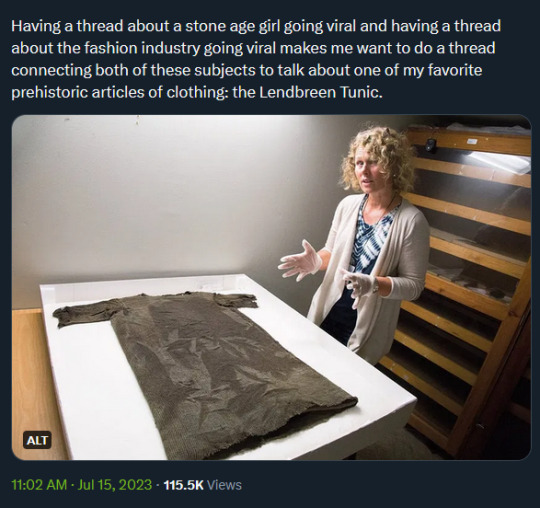
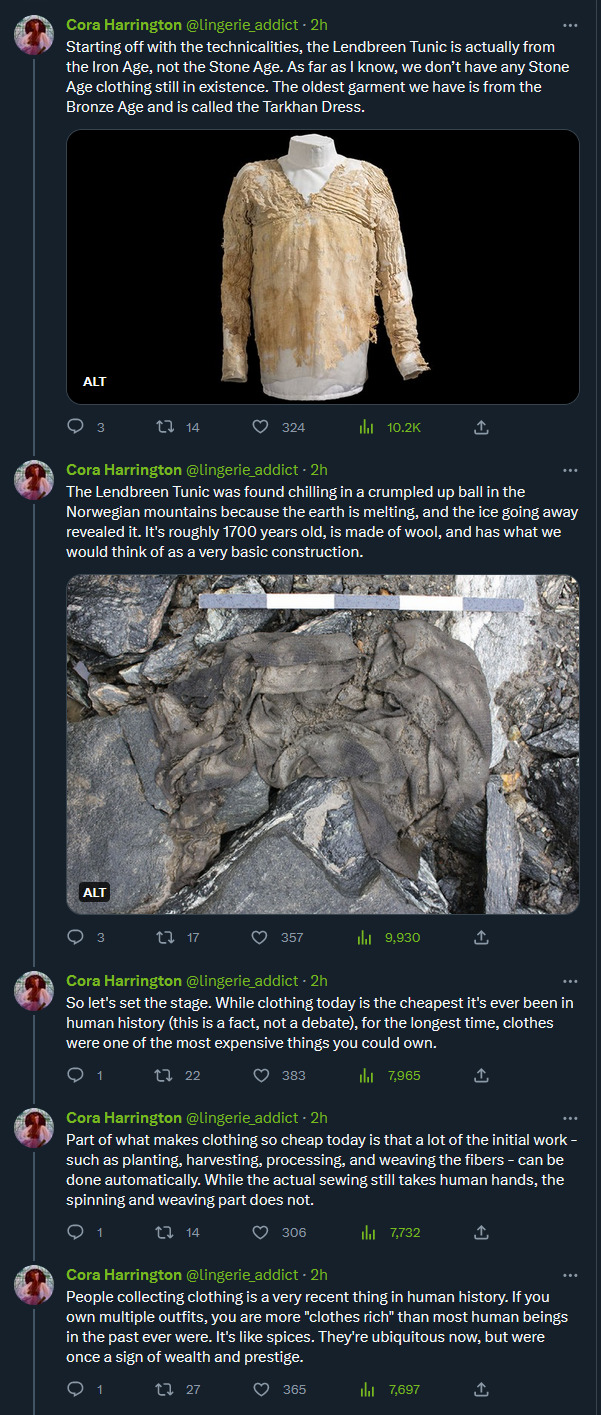
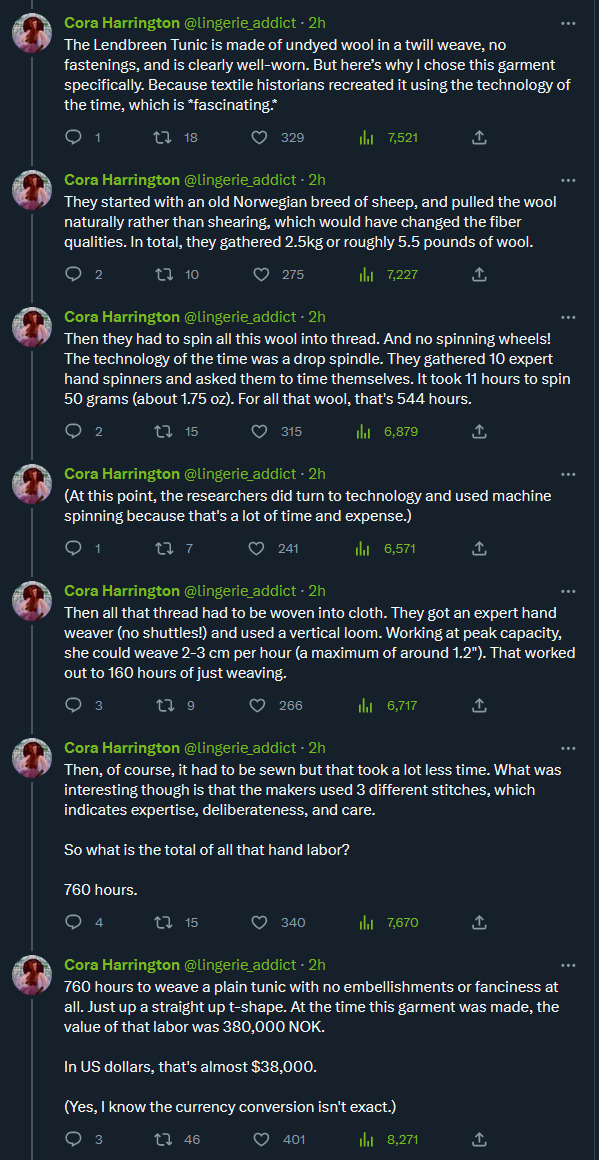

@lingerie_addict has a really cool thread on ancient fashion over on twitter.
Those source links are here
cambridge.org
Youtube
ucl.ac.uk
36K notes
·
View notes
Text
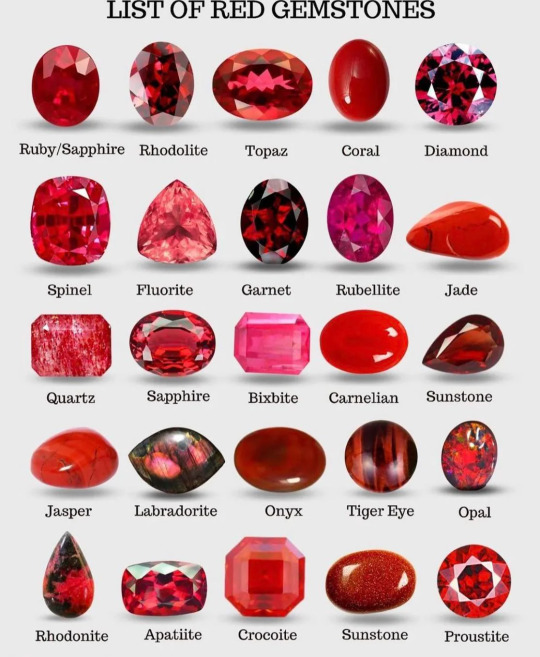
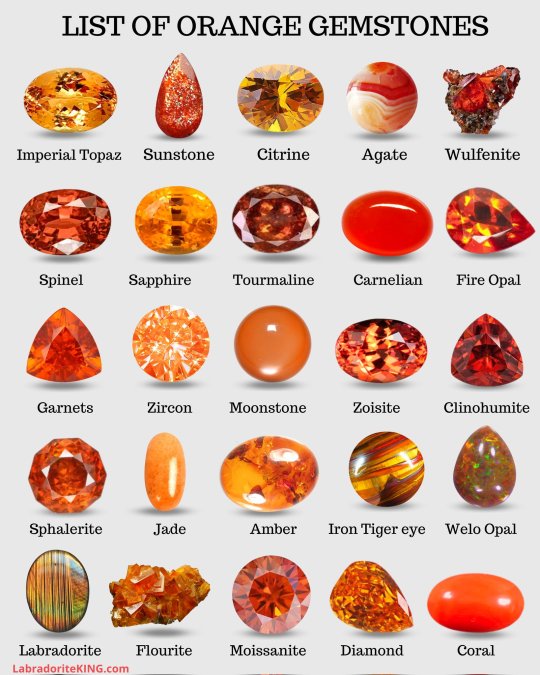
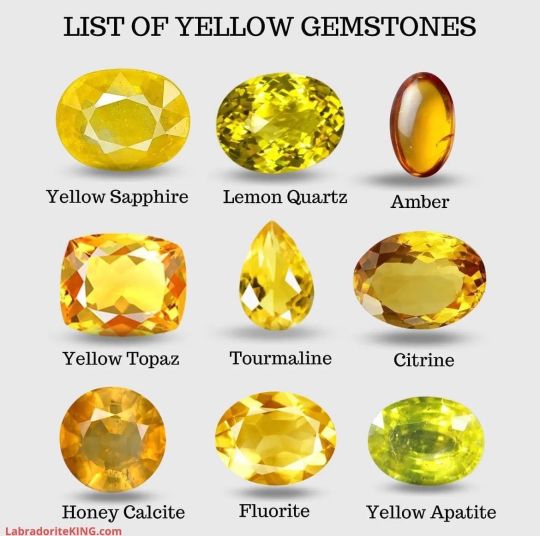
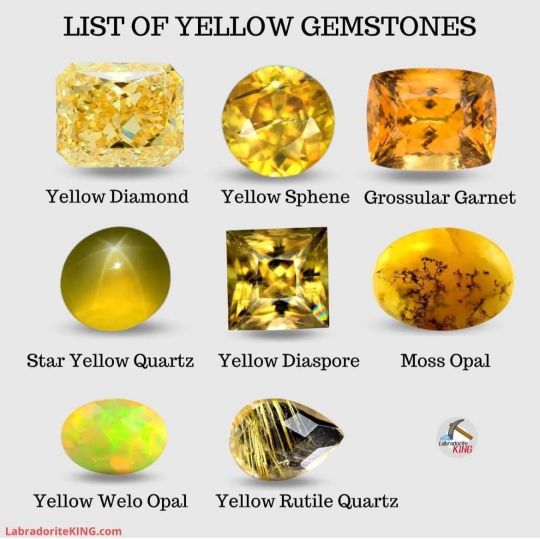
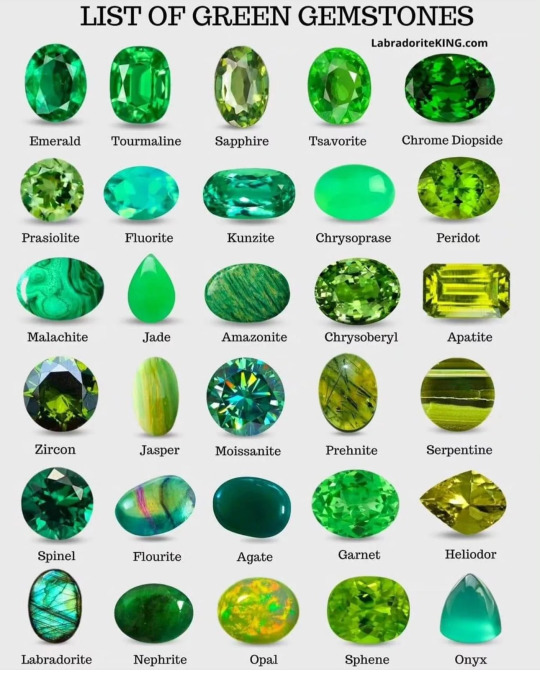
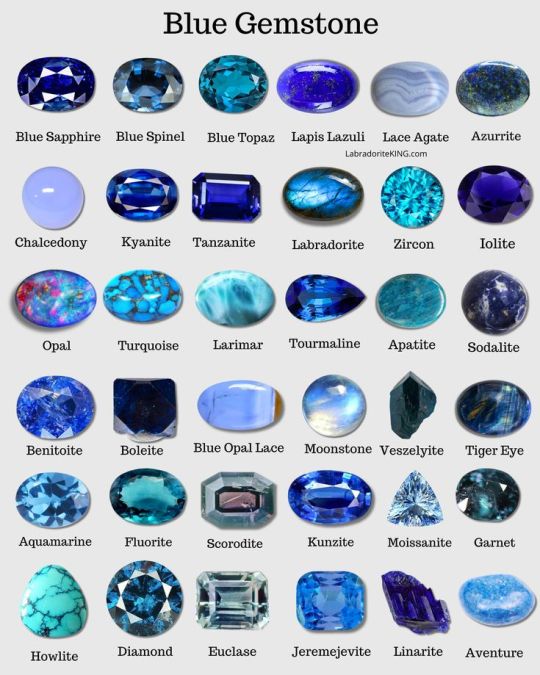
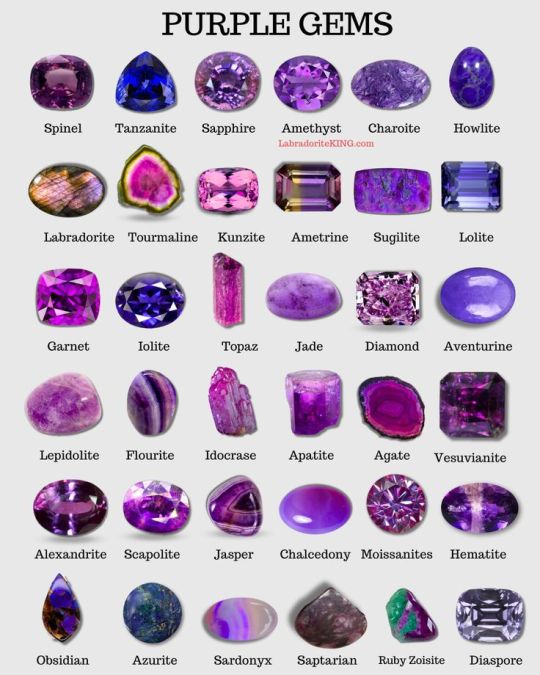
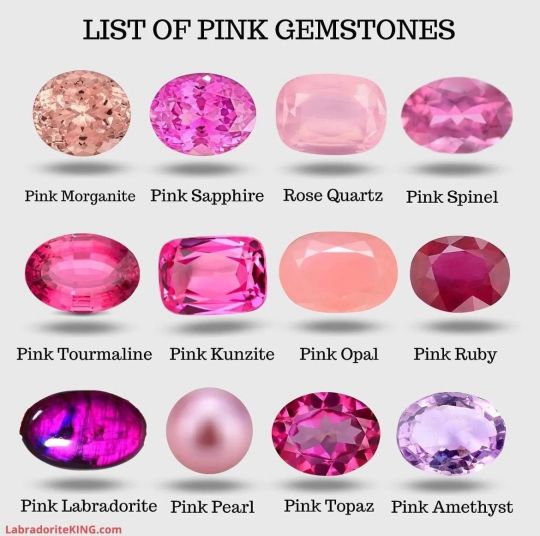
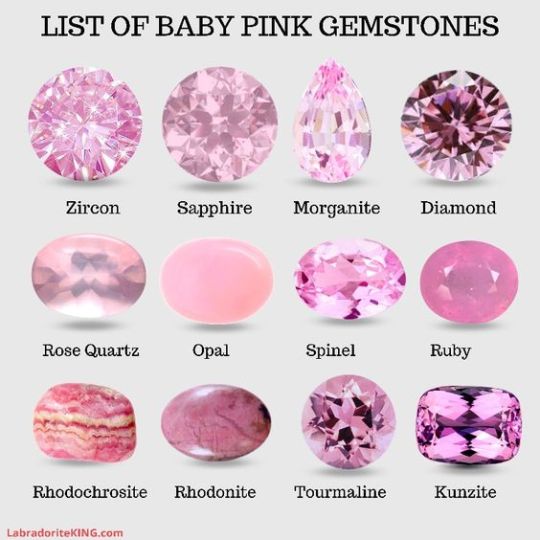
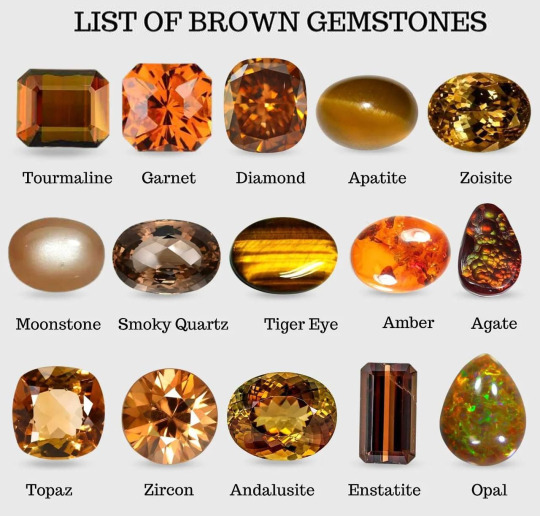
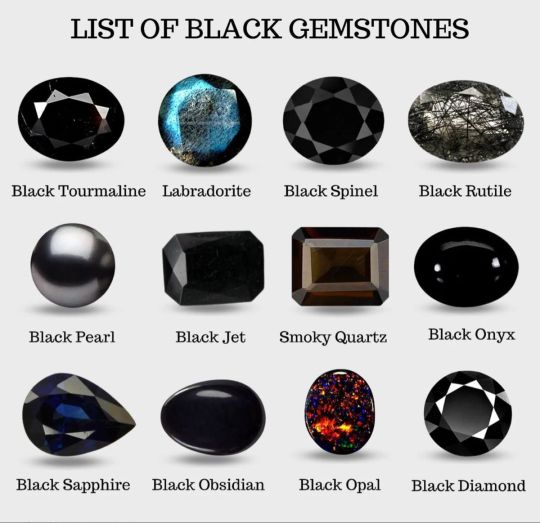

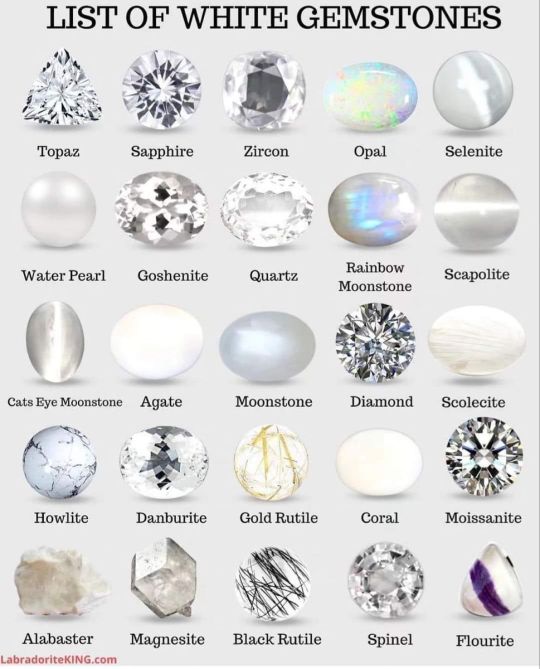
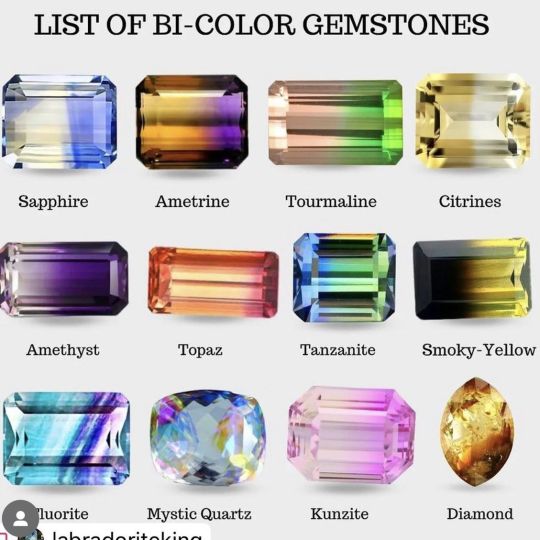
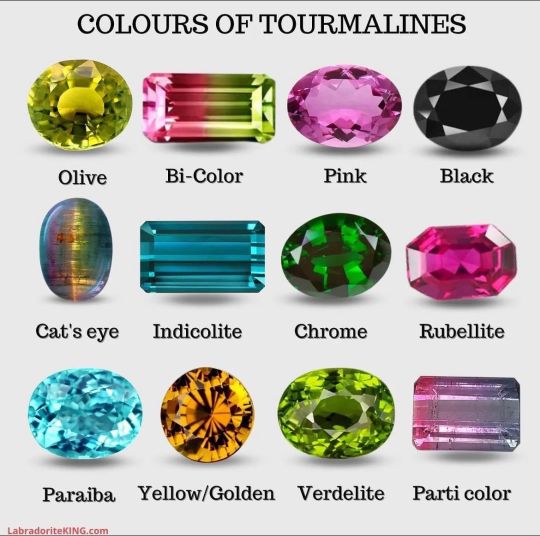
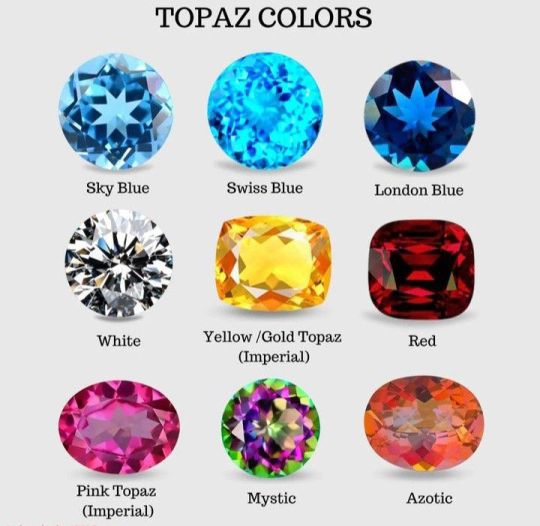
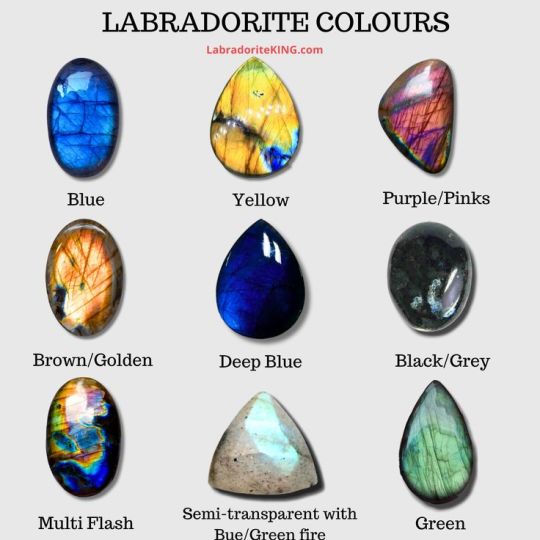
By LabradoriteKing on Pinterest
168K notes
·
View notes
Text
Something I'm fond of saying is "The villain drives the plot but the hero sets the tone." Something that's very important about this is that the resolution to the conflicts presented need to match the hero's tone. If your story doesn't believe problems can be solved the way the hero wants to solve them... why is this the hero?
If you want your problems to be solved with brutal catharsis, then your hero should be someone who believes in brutal catharsis.
If you want your problems to be solved with forgiveness and reconciliation, then your hero should be someone who believes in forgiveness and reconciliation.
They don't have to begin there. This can be something they come around to over the course of the story, as they grow and change per their character arc. But by the time of their ultimate encounter with the villain, their values should be the values that drive the story forward.
There's this thing in D&D that some DMs do. Where, when you roll enough damage to deplete the monster's hit points, they'll turn to you and say, "That's a kill. Describe for the group how you take the monster down." And you're allowed to come up with some cool maneuver or something that your character did in order to deliver the finishing blow.
The hero's ultimate triumph over the villain is a lot like this. More than any other part of the story, this moment is their apotheosis. It should be a celebration of everything they are and everything they stand for.
You have defeated the villain; Now describe for the group what form that victory takes.
9K notes
·
View notes
Text
When a Character Is Grieving Someone They Never Got to Say Goodbye To
✧ They talk about the person in past tense… then correct themselves. Then stop talking entirely.
✧ They touch things that belonged to the person like they’re fragile, sacred, about to disappear.
✧ They hoard the last voicemail, last message, last anything. Play it. Don’t play it. Just knowing it exists hurts enough.
✧ They leave something untouched, an empty seat, a half-packed bag, a coffee order that isn’t theirs.
✧ They get irrationally angry when someone else seems to be “moving on.” As if forgetting is betrayal.
✧ They don’t let themselves cry all at once. It comes in pieces. Like they’re afraid too much grief will drown them.
✧ They over-apologize. For being quiet. For being distant. For not being okay.
✧ They become hyper-aware of time, dates, anniversaries, time zones, the exact moment everything ended.
✧ They get superstitious. Ritualistic. As if doing things "right" might reverse something.
✧ They smile when they talk about the person. But it’s brittle. And it never quite touches their eyes.
17K notes
·
View notes
Text
Fantasy Guide to Political Structures

A Horse! A Horse! My X for a Horse!
Let's be honest, fantasy authors love their kingdoms and empires. You can throw a rock in a bookshop or a library in the fantasy section and you will 99.99999% hit a fantasy book that will be set in or mention either of those structures. But what are they really? What's the difference between them all? Are there any more examples of structures that would suit your WIP better? Are you using the right terms? Let's have a closer look.
Duchy

A Duchy is a small territory ruled by a Duke/Duchess. While Duchies can be found in kingdoms, some duchies were sovereign states in their own right. Duchies are usually small by land mass but some duchies such as Burgundy were extremely powerful and influential. Independent Duchies were usually apart of a kingdom but grew so powerful that they eventually broke away to become a sovereign state in their own right. An example would be modern day Luxembourg, historic Milan and Burgundy.
Principality

A principality is territory ruled by a Prince/Princess. A principality is typically smaller than a kingdom and in some instances, can be apart of a larger kingdom or be a sovereign state. Principalities have a history of having broken away from a larger kingdom or eventually becoming apart of a kingdom. A principality within a kingdom is ruled by a Prince/Princess, usually an heir of the monarch and can be used to train them up to assume the throne in the future. Examples include Monaco, Liechtenstein and Andorra.
Kingdom

A sovereign state/country that is ruled by ruling King or a Queen. A kingdom is much larger and more powerful than a principality. Kingdoms can be feudal, meaning they are ruled in a strict hierarchy or an autocracy where the monarch rules alone with minimal input from the government or constitutional where the monarch is more of a figurehead and the government has a good chunk of control. Examples include England, Thailand and modern day Spain.
Commonwealth

A Commonwealth isn't a popular choice in fantasy but it is an interesting structure. A Commonwealth in its most basic form is a collection of states that are linked by either a shared culture or history. A Commonwealth can be a politically power or an economic power, with every state allowed to participate as much as they like. Not one state leads the others, it is all one group of equals. A Commonwealth can be a good idea for a group of nations that are more powerful together with them keeping their own independence.
Federation

A Federation is a political structure that is made up of united states or countries that are under a single government but each state is still independent and rules itself. Each state can have different laws, different cultures and economies but they all answer to the single government. Examples include the United States of America.
Republic

A Republic is a territory that is ruled by leaders and heads of state that have been elected on merit and by choice of the people. Republics are not just countries but can also be much smaller areas such as cities. Republics are democratic in nature, with the people having a say in who leads them in accordance to a constitution. There are many kinds of Republic: presidential, parliamentary, federal, theocratic, unitary. Examples of Republics include the Republic of Ireland and the city of Florence.
Protectorate

A Protectorate is a country/region/territory that is independent but relies on a larger, more powerful state for protection either in a military or diplomatic sense. A Protectorate was often used by Empires in order to maintain control over an area without annexing it. There are many reasons a larger state and the protectorate would agree to this, mainly the protectorate is much smaller meaning it is far more vulnerable to attack or it has very little power when compared to other states. A Protectorate allows the territory some power to rule itself but the larger state may feel the need or desire to interfere in the dealings of the territory. Examples of protectorates include the client kingdoms of the Roman Empire like Egypt before its annexation and Puerto Rico.
Empire

An Empire is a collection of nations that are united under one sovereign head of state or government. An Empire is formed by one nation steadily taking control of other nations, either through straight invasion and colonization or acquiring them through marriage and other less violent ways. An Empire is powerful mainly because it can drum up more resources, more influence and more military power. An Empire might impose the traditions, beliefs and culture of its principal nation - the nation that started it all - onto its colonies for better control and feeling of uniformity. Empires never last, that is something to always remember. Empires will eventually fragment due to the vast size and sometimes revolt among the conquered states. Examples of empires include the Roman Empire, the Byzantine Empire, the Ottoman Empire.
5K notes
·
View notes
Text
When reading fanfic keep in mind that for professional literature:
Short story: under 7,500
Novelette: between 7,500 and 17,500
Novella: between 17,500 and 40,000
Novel: over 40,000
Fics over 40k are literally a novel written and shared for free. If you have written a 40k+ fic, you have literally written a novel.
115K notes
·
View notes
Text
A bit of drama for @flashfictionfridayofficial :D
Warning: character death/dead character
Fandom: none

One day more.
He just needed one day more.
Please. Just one. One day, that was all he needed to make it.
To make things right.
To be able to heal him.
One day more.
But he didn't breathe anymore.
And he was starting to get cold.
He couldn't feel a pulse anymore either.
No, no he couldn't be dead.
He was almost done with the potion!
He had to be alive to take the potion!
He couldn't be too late, he'd needed just one day more!
He could have saved him if it had been just one day more!
Just one day more...
Please.
8 notes
·
View notes
Text
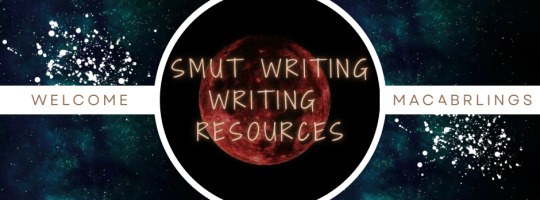
This obviously needed its own post and here it is, a collection of blog posts and resources I have found and used for my own writing, I hope they help you too! Go forth and write that spice!
The Smut Writers Dictionary By @maybeeatspaghetti Seriously, how many different way are there to write cock? Does anyone else wonder if they've used the word 'lips' too many times? Well, this is a good place to start!
The Ultimate Guide to Writing Smut This is the first one I found and I go back to it frequently! There's also some great information about specific areas of sex that may not be common knowledge for first time writers!
How to Write Smut By @urfriendlywriter Another great source of information from different verbiage to use and a few tips to hel you along (giggity)
Smut Thesaurus By @prurientpuddlejumper just what it sounds like and you can never have too many words at your disposal.
6 Steps to Writing Better Sex By @chaoschaoswriting If you're at a loss or just want some more help this is antoher fantastic blog!
Writing Prompts NSFW By @seidenbros Need some dialogue? Or a story idea? Have a look!
#100 NSFW/Smut Dialogue Prompts By @a-cure-for-writers-block More? More. This is also a fantastic writing blog with lots to offer!
Intimate + Sexual Headcannon Questions By @petalsprompts Good questions to ask your characters to get to know them better and make more well rounded characters!
Smut & Mature (18+) Master List By @pendarling A great list dialogue prompts, scenarios, and helpful bits!
Poly NSFW Alphabet By @smaoineamhsalach Another great way to get to know your characters and maybe a handful of ideas for story ideas.
Kink Prompts Another from the previous blogger above and I didn't know what half of these are! I'll work on a kink dictionary next!
Writing Smut 101: Overcoming Smut Shame @slightlyrebelliouswriter23 There's a lot to be said for this particular subject! It's hard to write stuff like this, so how do you get over it? Start here!
How to Write a Kiss Scene By @youneedsomeprompts Yes!!! I still struggle with this one! There's a thousand ways to kiss, find your favorite!
Smut Oneliners By @deity-prompts you can never have enough one-liners!!
How to Write a (Great) Sex Scene Another great article for new smut writers
9 Tips for Writing Steamy Scenes More tips to help you wirte good steamy stuff!
How to Write Erotica and a Damn Fine Sex Scene A WEALTH if information on writing, structuring, and helpful tips!
@saradikahas a fantatic blog with graphics for you to use to add some fun to your posts. Things like MDNI Banners, 18+ Content Warnings, Support Your Favorite Writers and Reblog banners! They are free to use but she does ask that you reblog her stuff if you do! She's also a very talented writer and she writes some AMAZING Din Djarin stories!
Gay Sex Positions Guide This is a WONDERFUL adition and thank you so much @b7bubby for bringing this to my attention, I didn't have any resources for writing M/M fairings but this is a much needed addition to the spicy community! i've never written an M/M pairing and I feel like such an idiot for overlooking the need for a resource like this!
Writing the Perfect Kiss Scene provided by @writers-potiona fantastic little guide to writing better kisses!
If you find any other great smut writing resources feel free to tag me so I can add them to this list! Good luck with your writing! Now go write that story and LET THE SPICE FLOW!!!!
3K notes
·
View notes
Text
Local Writer Shocked As She Realises Planned 'Short Fanfic' Is Turning Into Multi Chapters Plot Oriented Slow Burn Fanfic
8K notes
·
View notes
Text
10 Traits That Make a Character Secretly Dangerous
❥ Disarming Humor. They’re the life of the party. Everyone’s laughing. No one’s noticing how much they aren’tsaying.
❥ Laser-Sharp Observation. They see everything. Who’s nervous. Who’s lying. Who would be easiest to break. And they don’t miss.
❥ Unsettling Calm. Even in chaos, they stay still. Smiling. Thinking. Calculating.
❥ Weaponized Empathy. They know how to make people trust them. Because they know exactly what people want to hear.
❥ Compartmentalization. They can do something brutal, then eat lunch like nothing happened.
❥ Controlling Niceness. The kind of kindness that’s sharp-edged. You feel guilty for not loving them.
❥ Mirroring Behavior. They become whatever the person in front of them needs. It's not flattery. It’s survival—or manipulation.
❥ Selective Vulnerability. They know how to spill just enough pain to make you drop your guard.
❥ History of “Bad Luck”. Ex-friends, ex-lovers, ex-colleagues… they all left under “unfortunate” circumstances. But the pattern says otherwise.
❥ Unshakeable Confidence in Their Morality. They don’t think they’re the villain. That makes them scarier.
8K notes
·
View notes